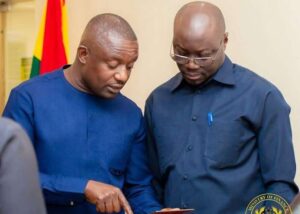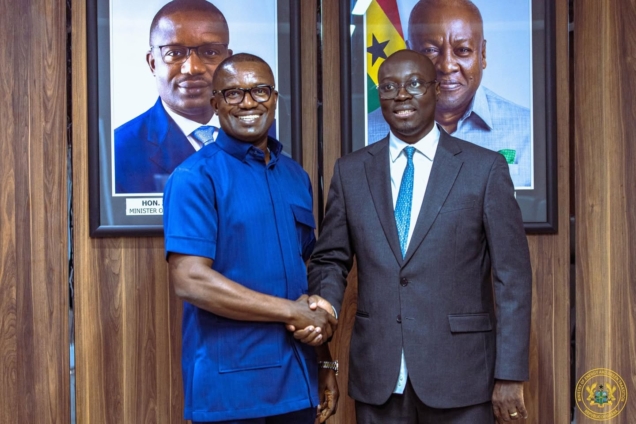Ghana’s Energy Minister, John Jinapor, has defended the newly introduced GH¢1.00 fuel levy, explaining that it is a crucial measure to tackle the country’s growing energy sector debt and ensure a stable fuel supply for power plants.
Speaking in an interview monitored by Bullet Online, Jinapor noted that the levy is expected to generate between GH¢5 billion and GH¢6 billion—around 60% of the amount needed to sustain fuel procurement. However, he acknowledged that this revenue would not fully cover the cost, meaning the Finance Ministry would still need to provide additional funds.

Regarding the sector’s debt challenges, Jinapor revealed that the government is renegotiating agreements with Independent Power Producers (IPPs) and working on a payment plan to bring financial stability. He emphasized the urgency of securing liquid fuel to maintain reliable electricity supply while also addressing inefficiencies in the system.
Background of New Energy Sector Levy
Finance Minister Dr. Cassiel Ato Forson introduced the Energy Sector Levy Amendment Bill in Parliament on June 4, sparking debate over new taxes on petroleum products.
The bill, presented under a certificate of urgency, seeks to impose additional levies on all petroleum products. Dr. Ato Forson justified the measure as a necessary step to address Ghana’s growing energy sector debt, which stood at an alarming US$3.1 billion as of March 2025.
Despite the proposed tax increase, the Minister assured lawmakers on June 3 that consumers would not feel an immediate impact at fuel stations, citing the strong performance of the Ghana Cedi as a mitigating factor. He also highlighted the financial distress within the sector, noting that the debt includes significant arrears owed to Independent Power Producers (IPPs), State-Owned Enterprises (SOEs), and major fuel suppliers.
The Minority opposed the bill, condemning it as an undue burden on Ghanaians.
Their protest reached a peak when they staged a walkout during the approval process, arguing that the Majority lacked the necessary quorum to make a binding decision on the legislation.
But parliament later approved the bill.
Source: Ebenezer De-Gaulle






